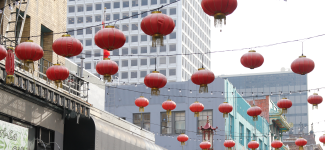Program overview
About the course
This program allows students to conduct interdisciplinary academic research while exploring the histories, cultures, foodways, heritage, and geographies of Asian migration around the Pacific, particularly Cantonese migration. These migration networks primarily stem from the “Szeyup” or “Four Counties” area of Canton (Guangdong) Province, the home region of many overseas Chinese who went to Canada in the 19th and 20th centuries. With field trips to sites across the Lower Mainland and West Coast of the US and Honolulu, students will explore themes including race, Asian migrants and Indigeneity, foodscapes, and cultural heritage. Students will learn in traditional and non-traditional classroom settings locally and abroad to explore best practices in ethical community-based research and knowledge sharing to rethink the history of BC, the west coast of North America and the Pacific and learn about the intertwined histories of Asian and Cantonese migrants. Students will be asked to present a project at a community showcase in June 2025. Led by Professor Henry Yu (History; ACAM), this is an idea opportunity for students looking for a short yet rewarding international experience.
Learn more about previous iterations of this program on YouTube!
Program Safety
All travel and program activities involve risk of harm to participants. Go Global and Seminar program leads take reasonable precautions to reduce risks. However, not all harms can be anticipated or prevented.
While travelling on UBC programs, students have a responsibility for their own safety and the safety of the group.
Some common issues for travellers include:
- Illness and injuries (e.g. respiratory illnesses, flu, food poisoning, sprained ankles, etc.)
- Fatigue and heat exhaustion
- Violence like robbery, or gender- and race-based harassment or attacks, especially in urban areas
- Traffic accidents
- Lost documents (passports, credit cards, etc.)
Before Applying:
- Get to know the places you will be travelling by using available resources like Global Affairs Canada travel reports.
- Consider your own mental and physical health alongside what you know about the conditions during the program (e.g. how physical is the program? What are the living conditions? What can I do to prepare myself?)
Before departure:
- Participate in all pre-departure activities offered by Go Global and your program teaching team to learn about the program and ways to prevent and respond to incidents.
- Ensure you have adequate travel medical insurance that will cover you in the location and for the duration of your trip.
- Be aware of how to use your travel medical insurance, if you need it, and where to access medical care or other emergency assistance in the locations where you will be travelling.
During the program:
- If you don’t feel safe, say something! Let your program leads know how you feel, or about incidents that occur. Don’t hesitate to contact Go Global during your program.
- Know your own needs: be aware of your own mental and physical health and your limits. Communicate with your program lead and group about making adjustments, as needed.
Public health: COVID-19 and other diseases
Students and faculty are required to comply with the entry requirements of the host country, regulations of transportation carriers, and any local public health orders. These rules might require vaccinations (e.g. for COVID-19, yellow fever, etc.) to enter the country or to participate in certain program activities. Some places may require masking, testing or isolation in various circumstances. It is your responsibility to research and comply with any requirements.
COVID-19 and other infections can spread easily in a group setting. Most programs involve shared accommodations. Unless required by local public health authorities, isolation for those infected during the program may not be possible.
Review local requirements before applying and before departure. Check the Global Affairs Canada Advisory under Entry Requirements for your Global Seminar destination to learn more. Keep in mind that program conditions can vary and rules can change before or during your trip.
